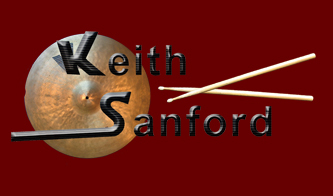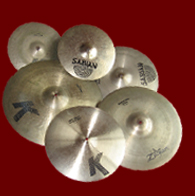 |
SanfordSpace.com Music by Keith Sanford |
 |
Visit Keith Sanford’s NEW website at www.ForwardFaith.org.
Forward Faith is a blog of music and ideas for a progressive faith.
This SanfordSpace website contains an archive of old material, but it is not being updated.
Original music by Keith Sanford: Songs with lyrics that have weight
Kaleido-
|
Kaleidoscope (song notes)This is a song about having the faith to believe in a type of beauty that both touches and transcends human experience. This is a beauty woven into the fabric of the universe, but it can only be experienced as faith because it cannot be tested in scientific investigation or proven by logical reasoning, and it is so grand we never fully or perfectly comprehend it. This song is also about how emotions, both good and bad, have the potential to make us aware of this beauty and move us toward it. |
Red Lines A song about racism
X
Red Linesby Keith Sanford Red lines were drawn on maps, based on types of skin Then sights and sounds of fear, flashed upon the screens Those fingers, some have claimed, never harm their prey |
Red Lines (song notes)Starting in the 1930s, the Federal Housing Association created maps with red lines around neighborhoods where black people lived, thereby designating these areas as high risk for home loans. This made it nearly impossible to buy homes in black neighborhoods, and black people were not allowed to move to white neighborhoods. Without access to funding for buying, building, and improving homes and businesses, black neighborhoods declined. |
Ravens Fly A song for children with disabilities
X
Ravens Flyby Keith Sanford Some children stand on mountains highreaching peaks up in the sky. But, those who cannot climb are gems in valleys. And the poet of life, found in the smiles of children that cannot climb, who show us the sacred things in time. And the ravens fly, and the lilies grow, and the poetry moves in the valleys, valleys low. Some children struggle with their words, and to learn from things they heard. But, when they laugh it fills the world with music. And the poet of life speaks through a child that struggles to understand, whose laughter is music for our land. And the ravens fly, and the lilies grow, and the poetry moves in the valleys, valleys low. The shining trophies may belong to the skillful and the strong. But precious are the hands that never hold them. And the poet of life mystically works through differently abled hands to touch us with something very grand. And the ravens fly, and the lilies grow, and the poetry moves in the valleys, valleys low. Now, hear the poet, hear the song. Feel the rhythm move along. Now, hear the child singing in the valley. And the poet of life moves in the wind; it’s found in a humble place, and gives us a wonder to embrace. And the ravens fly, and the lilies grow, and the poetry moves in the valleys, valleys low. |
Ravens Fly (song notes)Some children struggle to accomplish things that it seems most of their peers can do easily. They may have difficulty with learning, speaking, playing, or moving. They may have difficulty understanding their emotions or following social customs. These children (and I know this as a parent with personal experience) bring something wonderful to the world. They show us what is truly precious and beautiful. |
Who Will Weep? A lament for refugees aboard the St. Louis fleeing Germany in 1939
X
Who Will Weep?by Keith Sanford Beyond a night of broken glass
Now children beg in a market place A quota-system law that stands
Now children beg in a market place
Now, hear the sounds of refugees
Now children beg in a market place |
Who Will Weep? (song notes)In 1939, the ocean liner St. Louis sailed a few miles off the coast of Florida with more than 900 Jewish refugees on board fleeing from Germany. Due to a recently enacted quota system, the United states strictly limited the number of refugees it would accept, and eventually, the ship was forced to return to Europe. Many passengers later perished in the Holocaust. (“We sang a dirge and you did not weep.”) |
Dancing Child A song about a faith that finds beauty in the world
X
Dancing Childby Keith Sanford Shattered stones of rubble beneath her feet Precious drop of life is dancing around Who will see this dancing, this little girl? |
Dancing Child (song notes)This is a song about faith and the things that faith may allow us to see. Sometimes that which is beautiful is revealed in situations and places where there is hardship. On this recording, the entire drum part (which includes drums, several cymbals, and a cowbell) is something I practiced for a while and then recorded in a single take with no overdubs. |
MeaningsA song about religious stories and texts
X
Meaningsby Keith Sanford Pages of a sacred book that |
Meanings (song notes)Some religious stories and texts have been passed down for thousands of years. They reflect ages of human striving to understand what is meaningful and good in life. This song is about how different people find different types of meaning in these stories and texts, and how this diversity can be a good thing. The beauty and power of these ancient stories and texts may not rest within a single, fixed meaning they possess, but rather, it may be found in their ability to inspire multiple meanings. Each person that encounters them may find something new. |
Hope and Tears A song about the Trail of Tears in the winter of 1838
X
Hope and Tearsby Keith Sanford On the trail I hear them weeping. But, I hope in a song to be sung like a savior that says: Heavy bags upon her shoulders. But, I hope in a song to be sung like a savior that says: Like a glimmer in the darkness, And, I hope in a song to be sung like a savior that says: |
The people of the Cherokee Nation made many concessions to keep peace with the United States, and they were viewed as one of the Five Civilized Tribes. But, a previous treaty had placed them on land in present day Georgia that turned out to be valuable farmland. So, the old treaty was nullified, and the Cherokee were moved to detention camps and then forced to march to Oklahoma. Due to harsh conditions, several thousand people died along the way. |
Stories A song celebrating human diversity
X
Storiesby Keith Sanford I want to hear the heartbeat pushing life into the earth |
In the news and in events throughout history, there are many situations where one group of people acts with prejudice against another group. It appears that it is natural for people to be drawn toward ways of thinking that affirm their own superiority and that cast judgment on others who seem different. This raises a question. How can we better embrace human diversity, and can we do this in a way that is positive, and not merely casting judgment on others for being judgmental? Maybe, we can do this, in part, by drawing from a wonderful human capability. That is, we have the capability to learn about other people and to understand their stories, their experiences, and the reasons why they do what they do. |
We Bought It A song about the history of the Panama Canal
X
We Bought Itby Keith Sanford Traveling down from Panama to a giant ditch
We bought it and we built it. Now it belongs to us Then there was malaria all across the land
We bought it and we built it. Now it belongs to us
Some may want to justify, and they want to know
We bought it and we built it. Now it belongs to us |
When talking about the Panama Canal, a famous politician said many years ago: “We bought it, we paid for it, we built it, and we intend to keep it.” Because this statement is packed with poetic punch, and because it seems to epitomize a kind of sanctimonious, self-serving claim about what defines fairness and justice, I decided that it needed to be used in a song. So, I wrote this song about the history of the Panama Canal. |
Can't be Named A song inspired by 1962 Supreme Court ruling about prayers in schools
X
Can't be Namedby Keith Sanford For moral and for spiritual, for training in the schools
But, something wonderful is dancing just like a flame.
Some want an inquisition, and others want to shun
But, something wonderful is dancing just like a flame.
I heard about a still small voice that whispered in the wind
And, something wonderful is dancing just like a flame. |
In the early Fifties, the New York Board of Regents issued a statement on “Moral and Spiritual Training in the Schools,” and they composed a short prayer for children to recite at the beginning of each school day. Within religious communities, some may have thought the regents acted with divine authority, correctly discerning the ways in which children should pray. Others may have viewed the prescribed prayer as a biased and authoritative claim to truth that ignored the beauty, diversity, and mystery of religious experience. In 1962, the Supreme Court ruled that the use of this prayer in the public-school system was unconstitutional, and subsequently, there have been many decades of political debate regarding prayers in schools. This song is one that I wrote drawing several images from this story. |
Visit the Facebook page.
Leave a comment.
|
|